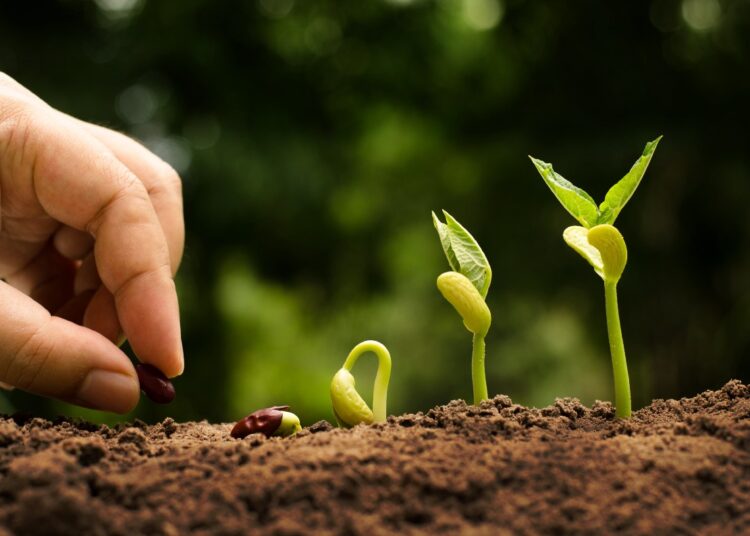You might wonder where all the earnings from agricultural produce go. For example, in the first five months of this year, Egypt exported 3.5 million tonnes of its fruit and vegetable surplus, but most of the proceeds were swallowed up by spending on imported vegetable seeds. You read correctly: Seed imports. And they are not cheap.
Yahia Metwalli, professor of agricultural economy at the Agricultural Research Centre, told The Egyptian Gazette that our exports can be increased remarkably by producing our own seeds.
Meanwhile, land reclamation has expanded by leaps and bounds since 2014. In May this year, President Abdel Fattah El Sisi opened the first phase of ‘Egypt’s Future for Agricultural Production’, a mega-project along the Cairo-Dabaa road in northwest Egypt. This is part of the greater New Delta Development Project to reclaim 2 million feddans (acres), not to mention the 1.1 million feddans of reclaimed land in Toshka, 456,000 feddans in North and Middle Sinai, 1.5 million feddans in the new Egyptian Countryside Development Project, and 650,000 feddans in Upper Egypt and New Valley governorates. However, increased acreage is not enough to ensure food security for Egypt. But farmers are crying out for seeds.
Imported seeds are costly and often fail in Egyptian soils. In the 1970s seeds from Mexico proved unsuitable and were found to be prone to disease. To meet local demand, 98 per cent of vegetable seeds are imported at an annual cost of $1.2 billion, according to figures from the Ministry of Agriculture.
Professor Metwalli went on to say: “The Agricultural Research Centre has conducted several studies on producing new varieties of wheat, corn and rice seeds.”
“To this end, the state has set up Egyptian farms in nine African countries to support local production of seeds and exchange expertise with African agricultural specialists,” Metwalli added.
“We can modify seed varieties according to soil humidity, ambient temperature, resistance to disease and pests, and soil mechanics. This is the way forward to guarantee food security, for the nation.”
Farmers Union Chairman Hussein Abu Saddam said Egypt has already been producing rice, fava, wheat, cotton and corn seeds for many years. “The latest projects are for the production of seeds for tomatoes, potatoes, cucumber, pepper, eggplant and beetroot,” Abu Saddam told this paper.
“Therefore, local seed production will mean huge savings in foreign currency and cheaper produce at home,” Abu Saddam said, citing the example of growing maize from Egyptian-made seeds to make poultry fodder as opposed to importing 8,000 tonnes of fodder a year.






Discussion about this post